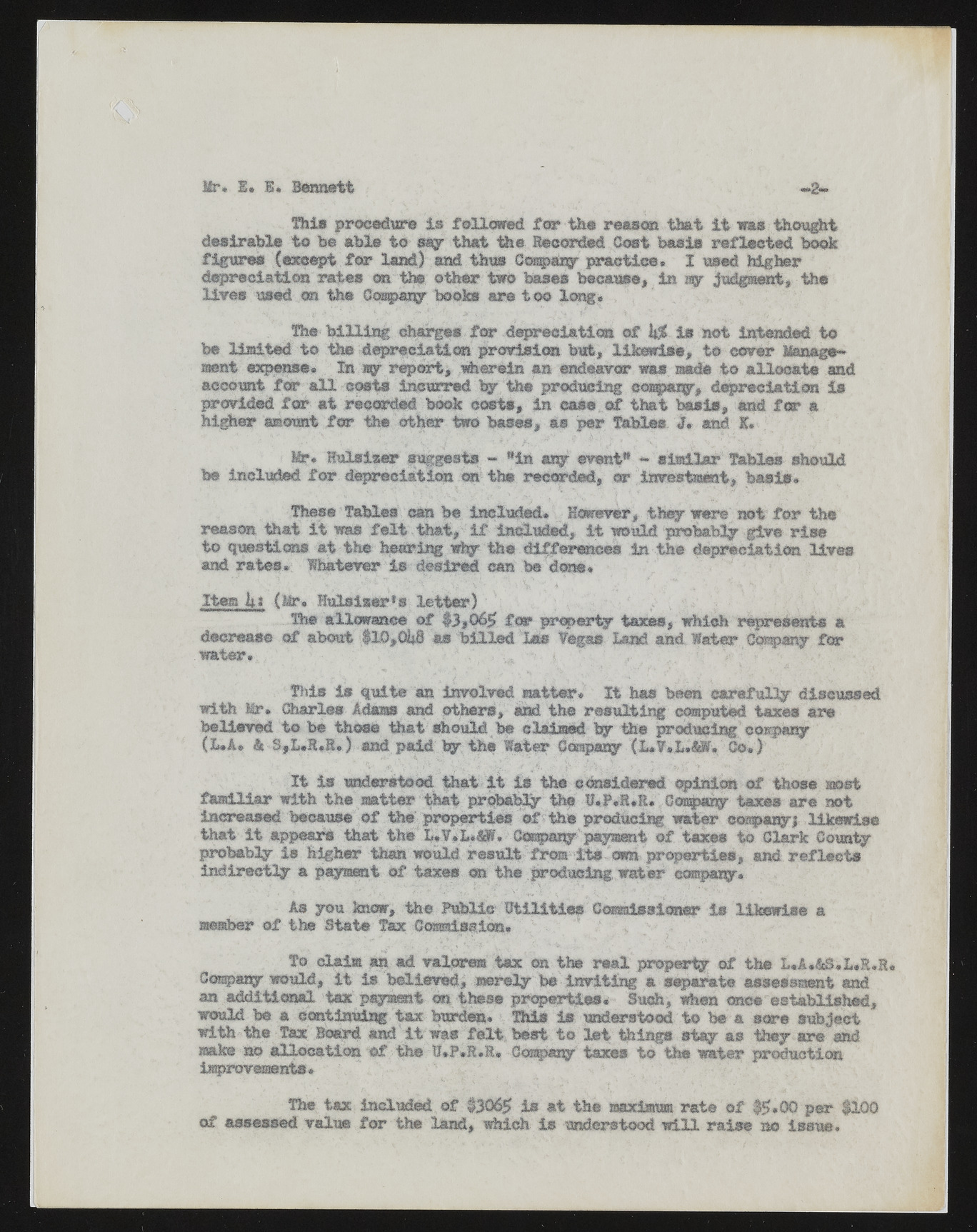Copyright & Fair-use Agreement
UNLV Special Collections provides copies of materials to facilitate private study, scholarship, or research. Material not in the public domain may be used according to fair use of copyrighted materials as defined by copyright law. Please cite us.
Please note that UNLV may not own the copyright to these materials and cannot provide permission to publish or distribute materials when UNLV is not the copyright holder. The user is solely responsible for determining the copyright status of materials and obtaining permission to use material from the copyright holder and for determining whether any permissions relating to any other rights are necessary for the intended use, and for obtaining all required permissions beyond that allowed by fair use.
Read more about our reproduction and use policy.
I agree.Information
Digital ID
Permalink
Details
Member of
More Info
Rights
Digital Provenance
Publisher
Transcription
Mr. S. 1 Bennett Z This procedure is followed for the reason that it was thought desirable to be able to say that the Recorded Cost basis reflected book figure# (except for land) and thus Company practice. I used higher depreciation rates 0*1 the other two bases because, in ay judgment, the lives used on the Company books are too long. The billing charges for depreciation of it£ is not intended to be Halted to the depreciation provision but, likewise, to cover Manage-- meat expense. In ay report, wherein an endeavor was made to allocate and account for all ©cate incurred by the producing company, depreciation is provided for at recorded book costs, in case of that basis, and for a higher amount for the other two bases, as per Tables j. and. K. Mr* Hulsiaer suggests - »ln ary event” - similar Tables should be included for depreciation on the recorded, or investment, basis. These Tables can be Included* However, they were not for the reason that it was felt that, if included, it would probably give rise to question® at the hearing why the differences in the depreciation lives and rates. Whatever is desired can be done. Item hi (Mr. Hulsiser*® letter) The allowance of #3,06*> for property taxes, which represents a decrease of about $10,0^8 as billed las Vega® Land and Water Cosapany for water. flits is quite an involved natter. It has been carefully discussed with Mr. Charles Adams and others, and the resulting computed taxes are believed to be those that should be claimed by the producing company (L*A» & SjL.R.R.) and paid by the Water Company (L.?,L,&WV Co.) It is understood that it IS the considered opinion of those most familiar with the matter that probably the U.P.R.R. Company taxes are not increased because Of the properties of the producing water company; likewise that it appears that the L.V.L.&h. Company payment of taxes to Clark County probably is higher than would result from its own properties, and reflects indirectly a payment of taxes on the producing water company. As you know, the Public Utilities Commissioner is likewise a member of the State Tax Commission. To claim an ad valorem tax on the real property of the L.A.M.L.R.R. Company would, it is believed, merely be inviting a separate assessment and m additional tax payment on these properties. Such, when once established, would be a cmtlnuing tax burden. This is understood to be a sore subject with the Tax Board and it was felt best to let things stay as they are and make no allocation of the U.P.E.R. Company taxes to the water production improvements. The tax included of $306$ is at the maximum rate of f*>.0Q per $100 of assessed value for the land, which is understood will raise no Issue.

